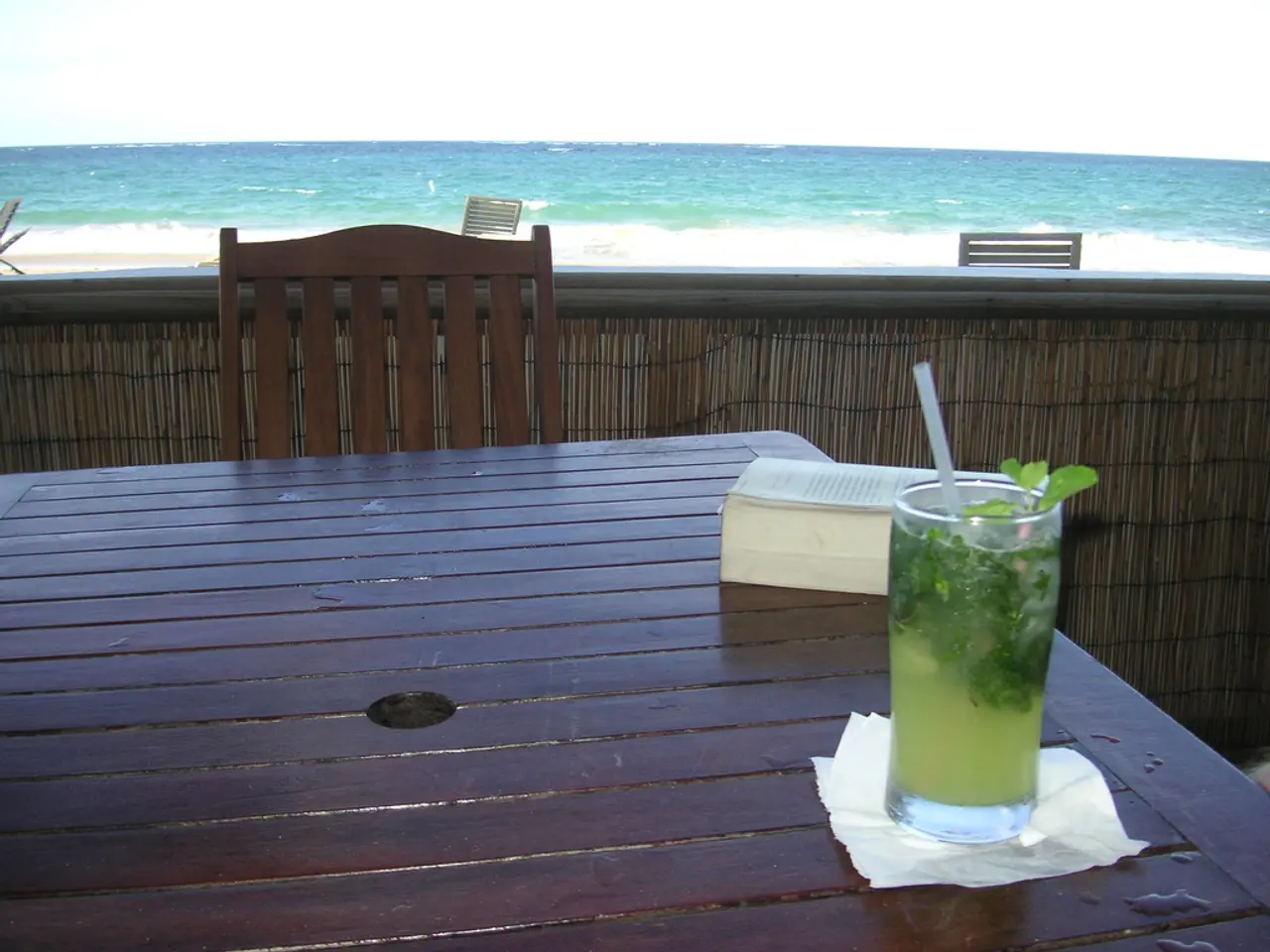Monitoring the presence of plastics in our marine environments
The Sustainable Seas National Science Challenge, a groundbreaking initiative, has developed an innovative online tool called the Ocean Plastic Simulator. This interactive platform allows users to track the movement of plastic waste in New Zealand's marine environment, providing valuable insights into marine plastic pollution.
Wave action is a significant environmental factor affecting life in the sea, and millions of tonnes of plastics enter the oceans every year. Unlike organic matter, plastics do not biodegrade but break into smaller pieces, posing a persistent threat to marine life.
The Ocean Plastic Simulator uses an interactive computer-based approach to simulate how plastics travel through ocean currents and marine processes around the country. The virtual plastic particles 'released' into the water represent macroplastics that are the size of a water bottle and float 3 m beneath the water's surface.
Users can choose a spot anywhere along the New Zealand coastline and drop virtual plastic into the water. The simulation tracks the movement of up to 30 pieces of plastic for 30 days or until they are all beached. This feature allows individuals to gain a better understanding of where plastic ends up when it is dropped in the ocean.
The hydrodynamic models used in the Ocean Plastic Simulator are created by turning coastal areas into a grid of triangles, each with information about the way the water moves and other variables. This approach helps identify key hotspots of plastic pollution and assess the impact of various sources on plastic distribution.
The Ocean Plastic Simulator is one of several tools created as part of the Sustainable Seas National Science Challenge, which is developing tools, technologies, and guidance to support an ecosystem-based way of managing the environment. Heni Unwin, a researcher at Cawthron Institute, has trialled the Ocean Plastic Simulator with schools around Aotearoa to improve its function and design.
In March 2019, Heni and Ross Vennell shared the Ocean Plastic Simulator as part of a LEARNZ virtual field trip, making it accessible to a wider audience. The simulator also includes an interactive panel with information about plastic oceans, Moana (the deep connection Māori have with the natural world), and the computer modelling behind the simulation.
Though the exact algorithms and input datasets used by the Sustainable Seas National Science Challenge's Ocean Plastic Simulator are not fully outlined, comparable models referenced include probabilistic models that estimate the likelihood and routes by which mismanaged plastics enter and move through marine environments. These models combine oceanographic data to project how plastics disperse, beached, or accumulate in specific regions over time.
By using models to represent phenomena for ethical reasons, the Ocean Plastic Simulator helps prevent the loss of plastic bottles and the addition to the pollution problem. This interactive tool is a significant step towards addressing marine plastic pollution and raising public awareness about its impacts.
The Sustainable Seas National Science Challenge is one of 11 National Science Challenges funded by MBIE and finished in June 2024. The Ocean Plastic Simulator is a testament to the initiative's commitment to creating tools and technologies that support an ecosystem-based approach to managing New Zealand's environment.
- The environmental science expertise behind the Sustainable Seas National Science Challenge has created an innovative online tool, the Ocean Plastic Simulator, for tracking climate-change related issues like marine plastic pollution.
- This lifestyle choice-focused tool, the Ocean Plastic Simulator, allows users to visualize the movement of plastic waste in New Zealand's marine environment and understand the potential environmental impact of their actions.
- The Ocean Plastic Simulator utilizes data and cloud computing to simulate how plastics travel through ocean currents and marine processes, enhancing the study of environmental-science and providing insights into sustainable-living practices.
- Integrating home-and-garden concepts with technology, the Ocean Plastic Simulator helps promote a wider awareness of the long-term effects of consumer choices on the environment and the importance of adopting sustainable-living habits.




